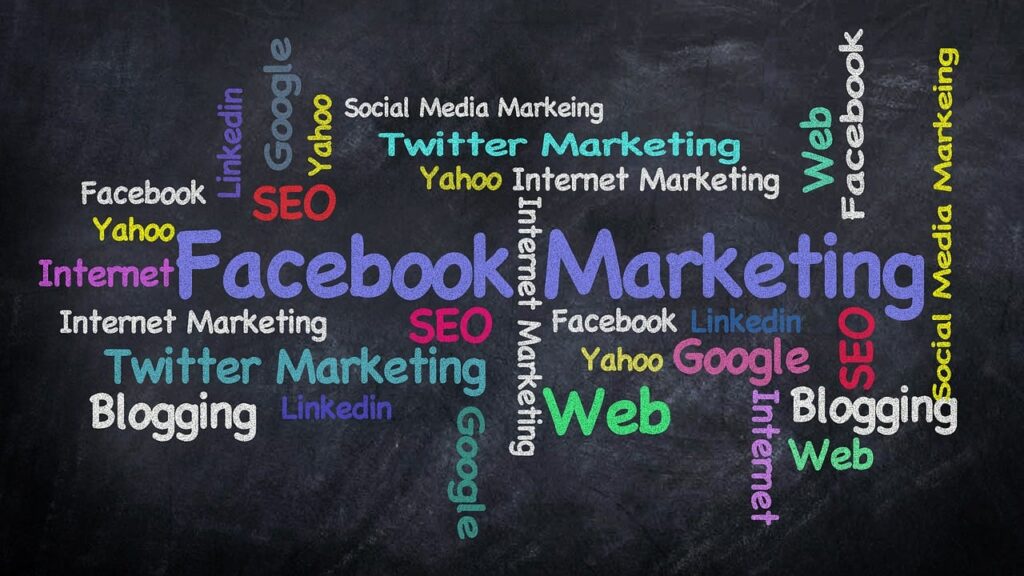In today’s technology-driven world, social media marketing is an essential tool for businesses looking to increase brand visibility, engage with their audience, and ultimately drive sales. Whether you’re a small business just getting started or a large enterprise with an established presence, social media marketing can help you connect with your target market in a way that traditional marketing methods simply can’t.
This comprehensive social media marketing guide will walk you through how to develop an effective social media marketing strategy, explore the best social media marketing tools, and learn how to measure the success of your campaigns.
What is Social Media Marketing?
Social media marketing refers to the process of using social media platforms like Facebook, Instagram, Twitter, LinkedIn, and others to promote products, services, and brands. It involves creating and sharing content, running paid ads, engaging with followers, and analyzing the performance of your efforts to achieve specific marketing goals, such as driving traffic, generating leads, or increasing brand awareness.
The beauty of social media marketing lies in its ability to reach a vast, engaged audience while allowing businesses to create meaningful connections. But to succeed in this space, you need a solid social media marketing strategy that outlines your goals, target audience, and the methods you’ll use to engage with your followers.
Why Social Media Marketing is Essential for Your Business

In the past decade, social media platforms have evolved from simple communication tools to powerful marketing platforms. The global reach, cost-effectiveness, and flexibility of social media marketing for business make it an essential component of any marketing strategy. Here’s why it’s critical:
1. Engagement with a Targeted Audience
Social media allows you to connect directly with your target audience in real time. Through comments, likes, shares, and direct messages, you can foster a two-way conversation with your followers, building relationships and gaining valuable insights into their needs.
2. Cost-Effective Marketing
Compared to traditional advertising methods, social media marketing is relatively inexpensive. Most platforms offer free accounts, and even paid advertising options like Facebook and Instagram ads are highly cost-effective when compared to television or print ads.
3. Increased Brand Awareness
Social media platforms are a great way to increase your brand’s visibility. With billions of active users on platforms like Facebook, Instagram, and LinkedIn, businesses have the opportunity to reach an audience they would not be able to connect with through traditional channels.
4. Better Conversion Rates
Engaging with your audience through social media marketing campaigns can directly lead to increased conversions. Whether you’re sharing blog posts, promoting a product, or offering a discount, social media can encourage users to take the next step and make a purchase or sign up for your service.
Crafting an Effective Social Media Marketing Strategy

To succeed in social media marketing, you need a clear and actionable strategy. A social media marketing strategy serves as a roadmap for your social media efforts, ensuring that every post, campaign, or interaction is aligned with your business objectives. Here’s how to build an effective strategy:
1. Set Clear Goals
Before you dive into content creation, you need to define what you want to achieve. Common goals for social media marketing for business include:
- Brand Awareness: Reaching a larger audience and getting your brand in front of potential customers.
- Lead Generation: Using social media to gather contact information and nurture leads.
- Customer Engagement: Building stronger relationships with your existing customers through regular interaction and value-driven content.
- Sales: Driving traffic to your website or product pages and ultimately increasing conversions.
2. Know Your Audience
Your social media marketing plan should be tailored to the needs and preferences of your target audience. Take time to understand:
- Demographics: Who are your ideal customers? What age, location, and interests do they have?
- Psychographics: What motivates your audience? What are their pain points, and how can your product or service solve their problems?
- Social Media Habits: Which platforms does your audience use most frequently? Are they more active on Instagram or LinkedIn?
3. Choose the Right Platforms
Not all social media platforms are created equal. Your choice of platform will depend on your audience and marketing goals. For example:
- B2B social media marketing is highly effective on LinkedIn, where businesses connect with other businesses and share industry insights.
- Instagram and Facebook are ideal for visually-driven content, making them perfect for lifestyle, fashion, and retail businesses.
- Twitter is great for real-time communication and engaging with followers during events, promotions, or breaking news.
4. Create a Content Calendar
One of the most important elements of a social media marketing strategy is consistency. A content calendar helps you plan your posts ahead of time, ensuring you maintain a steady flow of content. Your calendar should include the type of content to post (e.g., images, videos, blog links), the time of day, and the platform.
Social Media Marketing Tools for Efficiency

There are many social media marketing tools available that can help streamline your efforts and save time. Here are some essential tools to include in your social media marketing plan:
1. Hootsuite or Buffer
These tools help you schedule and manage your posts across multiple social media platforms. They also provide analytics to track your performance and help with content scheduling, so you’re not scrambling to post last-minute.
2. Canva
Content is king in social media marketing, and visuals are one of the most effective ways to engage your audience. Canva is an easy-to-use tool for creating stunning social media images, infographics, and promotional graphics that help your posts stand out.
3. Sprout Social
Sprout Social provides in-depth analytics, helping you track your social media performance and engagement. It also offers tools for social listening, allowing you to monitor what people are saying about your brand across platforms.
4. Google Analytics
While not strictly a social media marketing tool, Google Analytics helps you track the traffic coming from social media to your website, providing insights into which platforms are driving the most conversions.
Managing a Successful Social Media Marketing Campaign
Launching a social media marketing campaign involves a combination of planning, execution, and analysis. Here’s how you can ensure your campaigns are successful:
1. Set a Clear Campaign Objective
Every campaign should have a clear objective, whether it’s increasing brand awareness, generating leads, or driving sales. Define what success looks like before you start posting.
2. Monitor and Engage with Your Audience
Engagement is key to social media success. Respond to comments, answer questions, and engage in conversations. The more you interact with your audience, the more likely they are to become loyal customers.
3. Measure and Analyze Results
Once your campaign is live, track its performance. Look at key metrics such as engagement rate, website traffic, and conversions. Use this data to optimize your future campaigns and refine your social media marketing strategy.
Social Media Marketing for B2B and Small Business
B2B social media marketing has its own unique set of challenges and opportunities. B2B marketing typically focuses on building relationships and demonstrating how your product or service can solve complex business problems. LinkedIn is particularly useful for this type of marketing because it’s a professional platform that allows for detailed, industry-specific content.
For small business social media marketing, platforms like Instagram, Facebook, and Twitter are ideal for engaging with local customers and building brand loyalty. Small business social media marketing strategies often focus on creating personal, community-driven content that reflects the values and personality of the business.
Whether you’re working with a social media marketing consultant or handling it in-house, a tailored social media marketing business plan is essential for reaching your goals.
Social Media Marketing Consulting and Agencies
If your business is struggling to develop a social media marketing strategy, hiring a social media marketing consultant or working with a social media marketing agency might be a great option. These experts can provide insights into your current strategy, help you craft a more effective plan, and even manage your campaigns for you.
When choosing a social media marketing firm, look for one that specializes in your industry, has a proven track record, and is well-versed in the latest trends and best practices. Whether you’re a small business looking to grow or a large company in need of a comprehensive digital marketing overhaul, social media marketing agencies are equipped to handle all aspects of your campaign, from strategy and execution to analytics and reporting.
Conclusion
Social media marketing is an incredibly powerful tool for businesses of all sizes. From building brand awareness to driving traffic and increasing conversions, social media marketing for business offers endless possibilities. However, to succeed, you need a well-defined social media marketing strategy and the right tools to implement it effectively.
By understanding your audience, choosing the right platforms, and leveraging social media marketing tools, you can create successful campaigns that engage your followers and produce measurable results. Whether you are a small business social media marketing novice or a seasoned pro, the right approach will help you maximize your impact and reach your business goals.
Stay ahead of the curve by following the latest trends in social media marketing and attending events like a social media marketing conference to connect with industry experts. As social media marketing continues to evolve, those who adapt and innovate will be the ones who see the most success in their campaigns.






